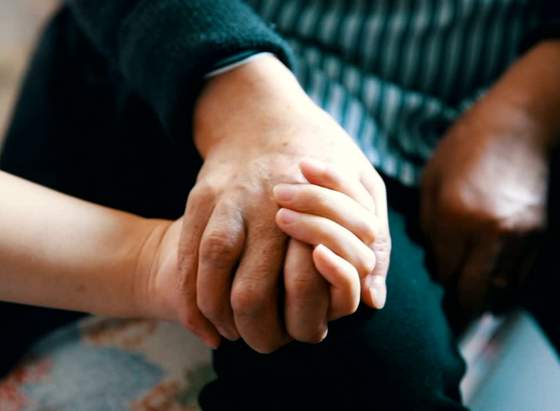Family programme

Written by:
Last Updated:
June 20th, 2025
When somebody gets struck down with addiction, it can feel like a building has crumpled to the ground, and in its wake, wreaks havoc on a person’s life. But what about the people who love and care for the person addicted? Such destruction sends invisible shock waves that ripple out to their family members, partners, and friends. Therefore, we mustn’t neglect the anguish addiction has on those who love and care for an addict. At Sanctuary Lodge, we provide family addiction support to all those affected by substance of behavioural dependency. In doing so we hope to help families repair any bonds that may have been broken through addiction, so they can restore their relationships for good.

What is family addiction support therapy?
Our family support programme aims to help all families and friends who have been affected by a loved-one’s addiction. Our highly trained therapists understand that the time you’ve spent watching your loved one suffer has taken its toll on your well-being too, so we’ll provide you with the space to discuss and release your emotions and offer guidance on how you and your loved one can heal together.
How does Sanctuary Lodge offer help for families of addicts?
It’s human nature to want to save the people we love from pain and suffering. But addiction has a sinister way of locking us out whilst still allowing us to witness its effects. When we are on the outside looking in, we can feel helpless, and this provokes us to respond in many complex ways; we may criticise, insult, plead, cry, threaten, ignore, bribe or shout at our loved one, in the hope they wake up to the reality of the situation. But sadly, the person addicted doesn’t realise they are in pain or causing pain for others until much later. During our family for addiction support sessions, we’ll discuss all these feelings and more with you. It can be cathartic to acknowledge, validate and release these emotions, not to mention, it can greatly help you to make peace with the past so you can look forward to a brighter future.

It’s normal for loved ones of addicts to feel…
Denial: You may have been in denial about your loved one’s addiction, especially in the early stages. You may have passed it off as a “phase”, or perhaps you pretended not to notice as means of alleviating stress and discomfort.
Anger: It is not uncommon for feelings of anger to be felt towards the individual as addiction can make them carry out actions or say things that have a harmful effect. Moreover, trust can be broken through lies, which gives way to contempt.
Despair: It’s heart-breaking to watch someone you love to suffer mentally and physically from an illness. You may feel utterly helpless about what is unfolding, which can cause intense emotional pain.
Guilt: Being on the side-lines of addiction can heighten our emotions, and it’s understandable to act out of exasperation. Perhaps you have found yourself shouting, threatening, or ignoring your loved one out of frustration. This can result in people regretting their words or actions afterwards.
Fear: Although people should never live in fear for their safety, it’s natural for loved ones to experience anxiety and uncertainty about the future of their relationships, finances and children, as well as concern for their loved one’s health and safety.
How are our family support sessions structured?
The client’s loved ones will be either invited into rehab, or into a video call once a week for family therapy. There, they will discuss the impact second-hand addiction has had on their lives with our expert family support therapist. In addition, we can invite the client to join the session to have a family therapy conference – this is known as a Conjoint. Conjoints are beneficial for all families but even more so for those whose relationships have become strained from addiction. These family therapy sessions will be facilitated by our experienced counsellors who specialise in offering help for families of addicts and building stronger intercommunications. It’s essential to note that these sessions are not about blaming or arguing but listening, understanding, and healing.
How else can family addiction support help?
Families of our previous clients have undergone our specialised family addiction support programme where they have found many benefits. Let’s look at some other ways family therapy can support loved ones of recovering addicts:
- Family therapy can shine a light on the driving force behind your loved one’s addiction and thus help you to separate the illness from them as a person.
- Family for addiction therapy allows you to be seen and understood – as we know how traumatic the effects of second-hand addiction can be.
- Family therapy shows you how best to support your loved one while they are in treatment.
- Family for addiction therapy will guide you on how to respond in the event of relapse and how to encourage growth in the individual’s recovery.
- Family therapy provides full details of where you can access ongoing support for yourself and other family members.
Our family for addiction support therapy is there for you
Sanctuary Lodge understands how addiction eats away at a person’s character to the point where they appear to be a shadow of their former self. If you’re watching someone you care about battle addiction, you may have felt a range of complex emotions which may have given way to various actions. Please understand that your feelings are valid. Our family for addiction support therapist can help you to process these feelings, without shame. Our primary goal is to help you to recover from the impact of second-hand addiction and rebuild your relationship with the person you love.

Reach out to us today
Whether your loved one is attending our alcohol rehab or drug rehab, all loved ones of the person addicted will be offered weekly support and guidance from trained counsellors. So, if you want to know more about our family addiction support programme, or if you have any questions on how best to help your loved one recover from dependency, give us a call today. One of our supportive team members will be happy to discuss family therapy further with you.
Disclaimer:
The availability of therapies may vary across UKAT centres. The specific therapies provided will be determined based on your treatment plan and the programme offered at your chosen facility. All treatments are subject to clinical assessment and programme availability at the time of admission. For further details on the therapies included in your treatment plan, please contact our admissions team.



